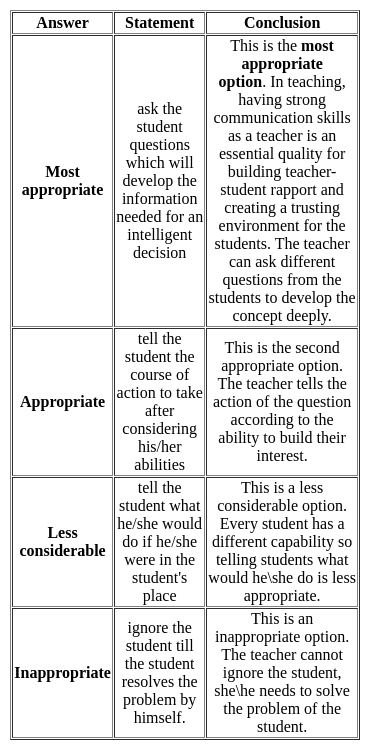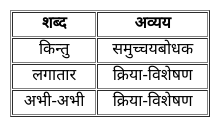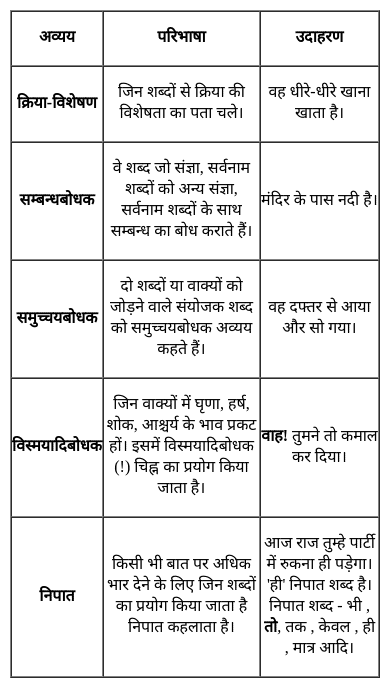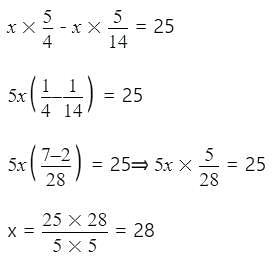WB TET Mock Test - 8 - WBTET MCQ
30 Questions MCQ Test - WB TET Mock Test - 8
Which of the following is/are the independent variable(s) of teaching?
A student has a problem. He/She asks the teacher "What shall I do ?" The teacher should
If the teacher realises that most of the students in her class are weak in studies, she should
The following sentence has been broken into four parts with an error in one part. Identify that part and mark it as your answer. If there are no errors in any of the given parts, mark option 4 or ‘No error’ as your answer.
Q. The student, whom you (1)/ expected to win the prize, (2)/ had lost miserably.(3)/ No error (4).
Direction: A word in capital letters is followed by four words. Choose the word that is most nearly opposite in meaning to the word given in capital letters.
DELECTABLE
Direction: In these Questions, Out of the four alternatives choose the one which can be substituted for the given words/sentence.
Words written on a tomb
Direction: A word in capital letters is followed by four words. Choose the word that is most nearly opposite in meaning to the word given in capital letters.
RAMPANT
For this given AP 3, 1, -1, -3, find the values of a and d is:
The concept of areas of plane figures can be introduced to the students of Class V by:
A candidate in an examination was asked to find  of a certain number. By mistake he found
of a certain number. By mistake he found  of it. Thus, his answer was 25 more than the correct answer. The number was :
of it. Thus, his answer was 25 more than the correct answer. The number was :
A Maths teacher provides a figure to his students and tells them to identify the number of triangles from the given figure. This is a type of ________ thinking.
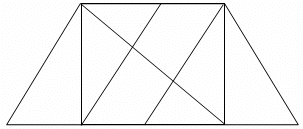
Which of the following should not be done by an EVS teacher while assessing students?
Experimenting, exploring, investigating and questioning constitute essential elements of active learning of EVS. A teacher arranges the following activities related to the concept of 'Food we should eat'. Which one of the below given activities satisfies the condition for active learning?
Which one of the following is not an objective of including riddles and puzzles in the EVS textbook?
Cooked rice can be preserved for a longer time in a refrigerator because:
Which of the following is a reason that students do not take part in learning EVS in schools?
I. Hostile environment
II. Poor teaching
III. Lack of interest in studies
Assertion (A): The main aim of EVS as spelled out in NCF 2005 is “to expose students to the real-life world, natural and social, in which they live.
Reasoning (R): The teaching-learning of EVS is thus just not a study area for primary stage children but is a training ground for developing environmentally friendly attitudes, values, habits, and behaviors.
Which of the following statements is not an objective of teaching EVS at the primary level?
To improve the EVS teaching processes, assessment should be of


